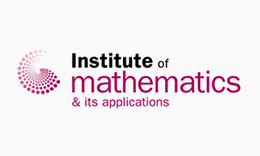Mathematics with Education Code G1X3 Attend an Open Day Attend an Open Day Clearing places available – 0800 121 40 80
Apply NowKey Facts
G1X3-
UCAS Tariff
120 - 104
-
Course duration
3 years
Available for
Further details on entry requirements
Apply NowMathematics with Education, at Aberystwyth University, will develop your appreciation of advanced mathematical and statistical techniques and cover a broad spectrum of childhood development activities that include the sociological, psychological and educational facets that influence the development of children.
On this course, you will spend two-thirds of your time in the Mathematics Department and one third in the School of Education. The degree utilises the expertise of each department to offer you a highly relevant and stimulating programme which is very attractive to employers.
In addition to the specialist mathematical and analytical skills, you will acquire through the degree, you will also gain a broad range of transferable skills which will serve you well in any career. You will be able to able to apply for PGCE teacher training courses at either Primary or Secondary level.
Course Overview
Careers
Teaching & Learning
Typical Entry Requirements
UCAS Tariff 120 - 104
A Levels BBB-BCC to include B in Mathematics
GCSE requirements (minimum grade C/4):
English or Welsh and Mathematics
BTEC National Diploma:
DDM-DMM with B in A level Mathematics
International Baccalaureate:
30-28 with 5 points in Mathematics at Higher Level
European Baccalaureate:
75%-65% overall with 7 in Mathematics
English Language Requirements:
See our Undergraduate English Language Requirements for this course. Pre-sessional English Programmes are also available for students who do not meet our English Language Requirements.
Country Specific Entry Requirements:
International students whose qualification is not listed on this page, can check our Country Specific Entry Requirements for further information.
The University welcomes undergraduate applications from students studying the Access to Higher Education Diploma or T-level qualifications, provided that relevant subject content and learning outcomes are met. We are not able to accept Access to Higher Education Diplomas or T-levels as a general qualification for every undergraduate degree course.
Our inclusive admissions policy values breadth as well as depth of study. Applicants are selected on their own individual merits and offers can vary. If you would like to check the eligibility of your qualifications before submitting an application, please contact the Undergraduate Admissions Office for advice and guidance.


